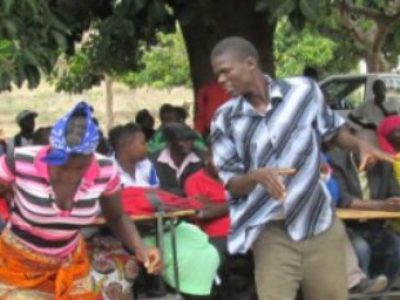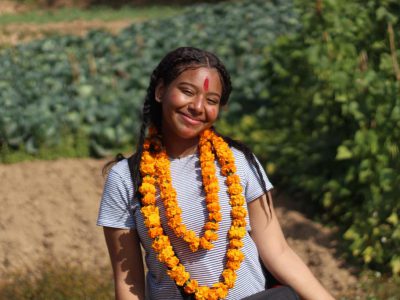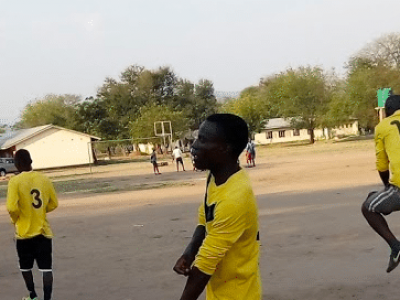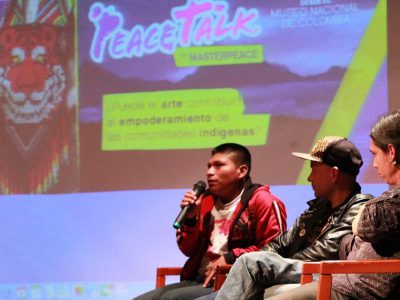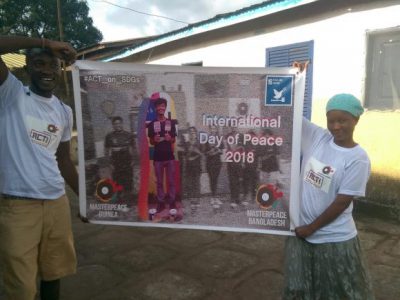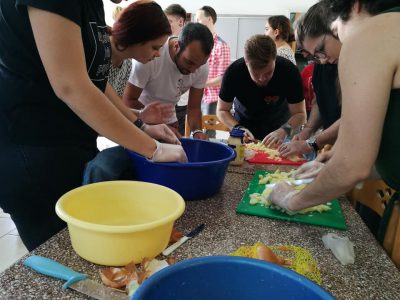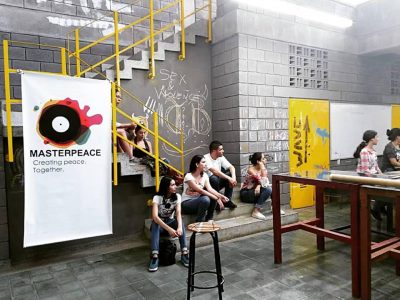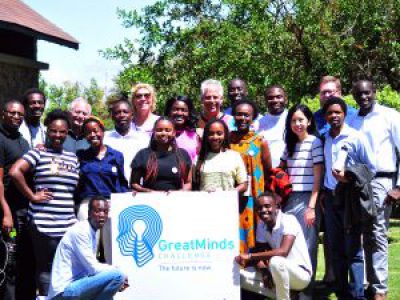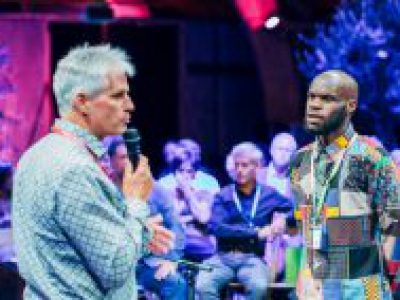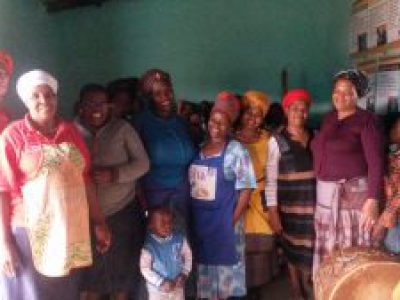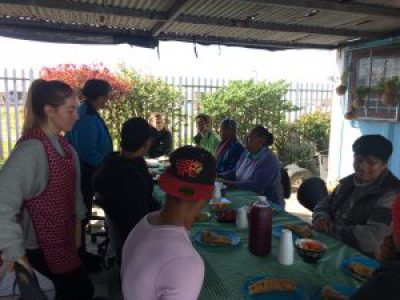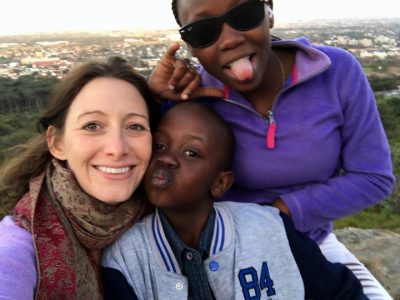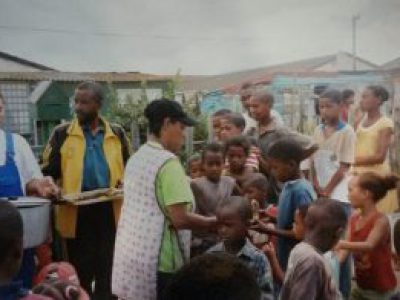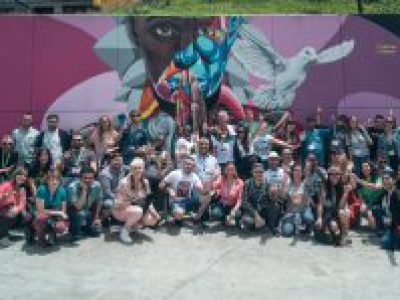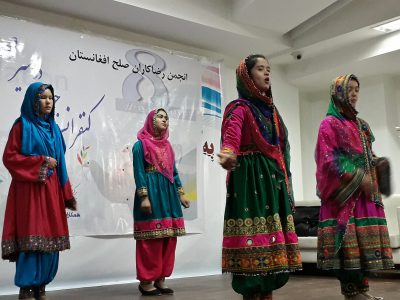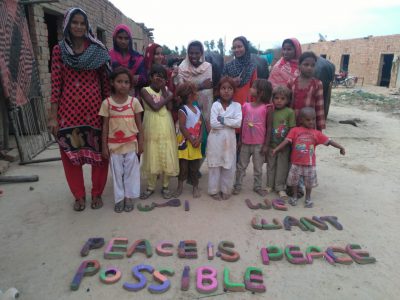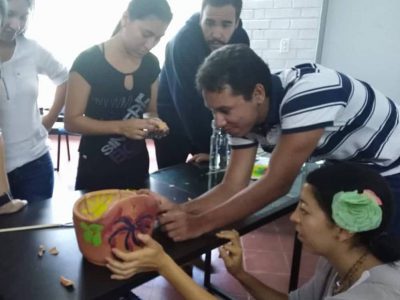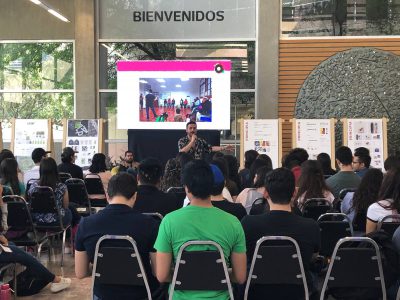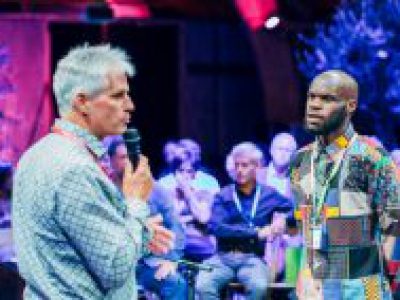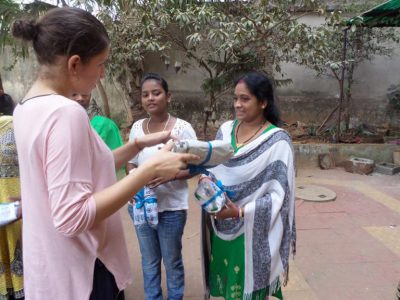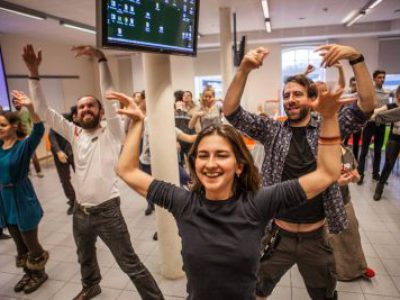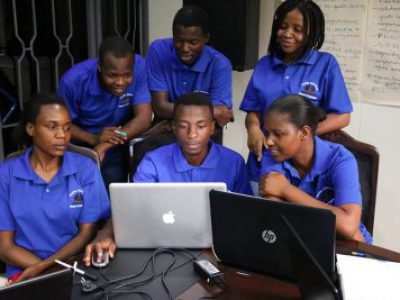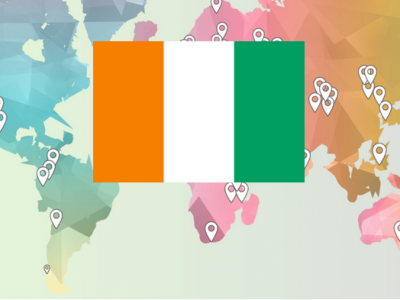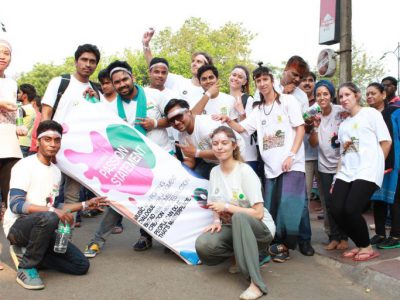Stories
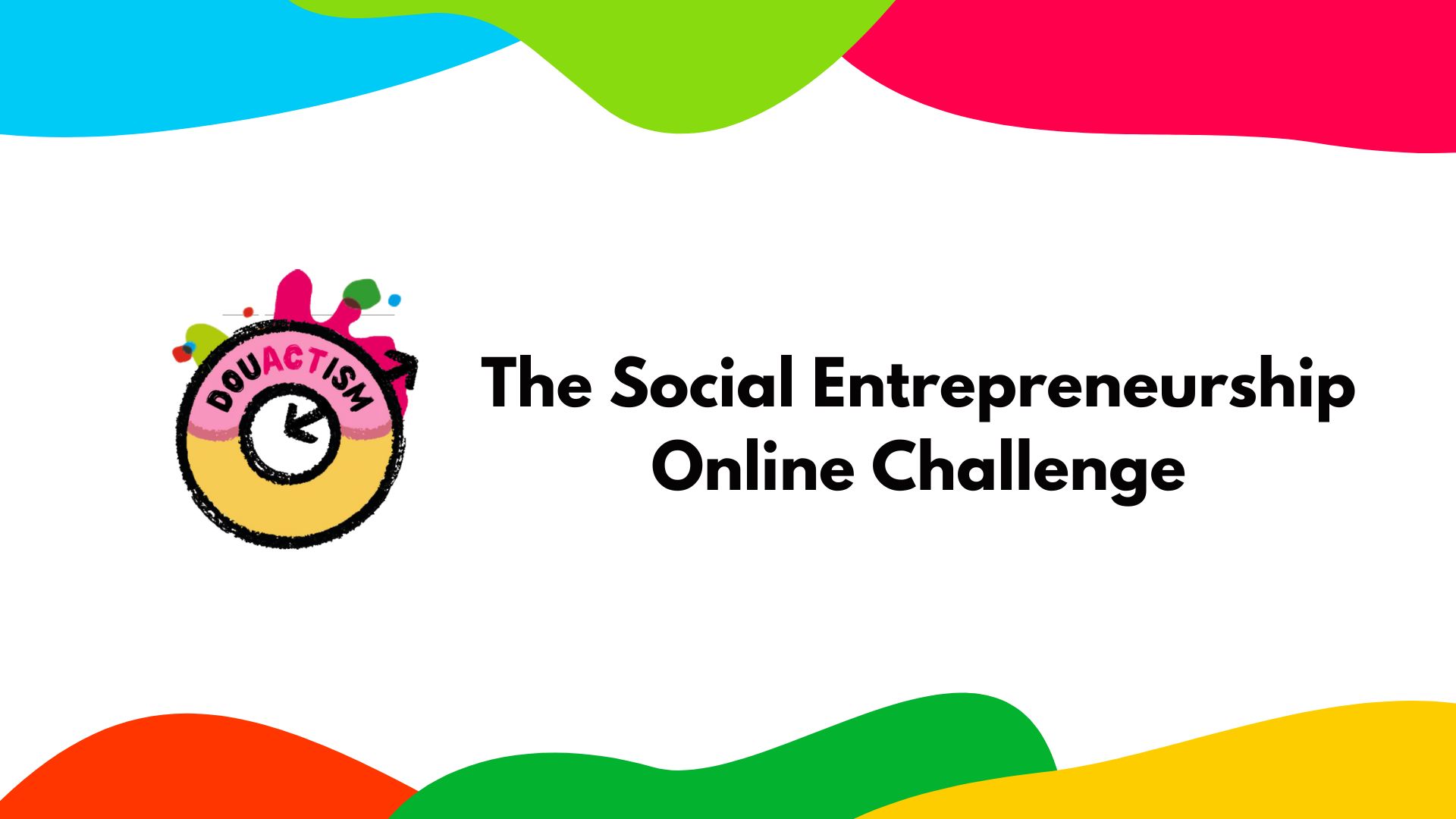
DO U ACTism is a project funded by the European Union. The project is a co-creation of five independent Non-Governmental Organisations (NGOs) from five countries: STICHTING MASTERPEACE (Netherlands), MasterPeace Morocco (Morocco), LUMEN (Croatia), SIT (Kosovo) and LDN (Lebanon). Our common mission is to mobilise talents for a sustainable future and to contribute to Sustainable Development Goal 4 (SDG 4) - Quality Education - and SDG 16 - Peace and Justice. The organisations provide expertise in non-formal education and youth work, including working with minorities and underprivileged youngsters. Partners are experienced in peacebuilding, youth empowerment and online working.
The Social Entrepreneurship Challenge is a competition designed to foster innovative ideas and initiatives that seek to create meaningful change and impact in the world.
This challenge encourages teams of innovators to tackle their communities' or business’ most pressing social issues through creative and sustainable initiatives. Teams are invited to bring a business plan and prototype of their idea to the challenge. By focusing on the intersection of technology and social impact, this competition hopes to discover and support the next generation of leaders and innovators.
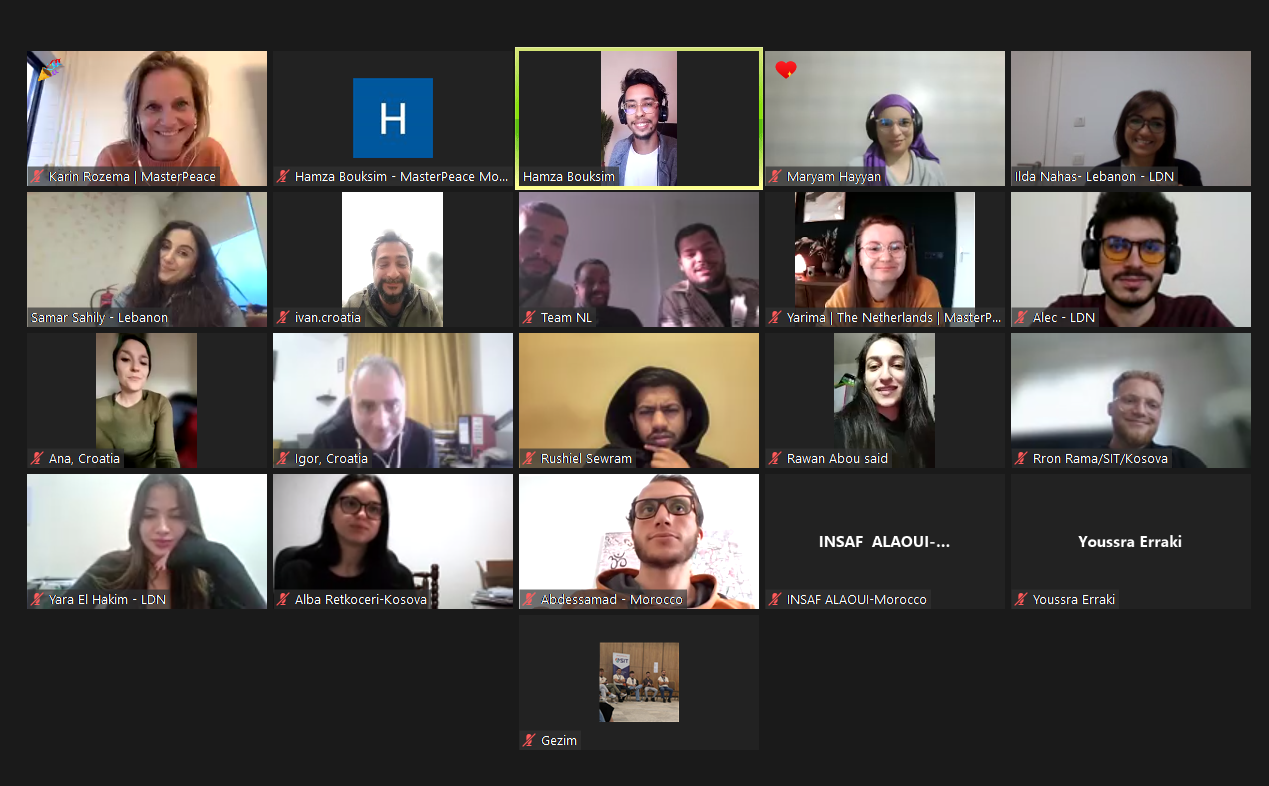
The first phase commenced with an online session on Thursday, 21st March 2024. This introductory webinar served as a platform for participants to familiarize themselves with the project's objectives, the scope of social entrepreneurship, and the expectations of the challenge ahead. It was an opportunity for the teams to engage with experts, ask questions, and prepare for the intense work that lay ahead.
Following the kickoff, an offline meeting took place, where teams were tasked with the crucial job of refining their ideas. This phase was pivotal as it allowed participants to delve deep into the practical aspects of their proposed social enterprises, fine-tune their business plans, and ready their pitches for the final session. The collaborative environment also fostered a sense of community among the participants, encouraging peer learning and networking.
The culmination of the DOUACTISM project was the final session on Thursday, 28th March. It was a day marked by enthusiasm and a showcase of innovative solutions to pressing social issues. Each team presented their well-prepared ideas, hoping to convince the jury of their project's viability and potential for social impact.
The winning team, hailing from Lebanon, stood out with their exceptional proposal that not only addressed a significant social challenge but also demonstrated a sustainable business model. Their victory was a celebration of the entrepreneurial spirit and the positive change that motivated individuals can bring about in society.
The success of the DOUACTISM project's social entrepreneurship challenge is a clear indicator of the vibrant potential that lies within the realm of social enterprise. It highlights the importance of providing young entrepreneurs with the right tools, guidance, and opportunities to turn their passion for social change into viable businesses.
As the project moves forward, the experiences and lessons learned from this challenge will undoubtedly shape the future of social entrepreneurship, not just within the participating countries but also across the EU and beyond. The DOUACTISM project is more than just a competition; it is a movement towards a more inclusive and socially conscious economy, where businesses operate not solely for profit but for the greater good of society.
The journey does not end here for the participants or the project. The winning team's journey continues towards the project's final manifesto in Agadir, Morocco, in December 2024, where they will have the opportunity to further develop their enterprise and make an even greater impact. For the rest of the participants, the challenge has laid the groundwork for future endeavors, inspiring a new generation of social entrepreneurs ready to take on the world's challenges with innovative solutions and a steadfast commitment to social progress.
The DOUACTISM project's social entrepreneurship challenge has indeed been a beacon for aspiring social entrepreneurs, illuminating the path to a future where business and social impact go hand in hand. It stands as a shining example of the EU's vision for a socially responsible and entrepreneurial society, one where every individual has the chance to make a difference.
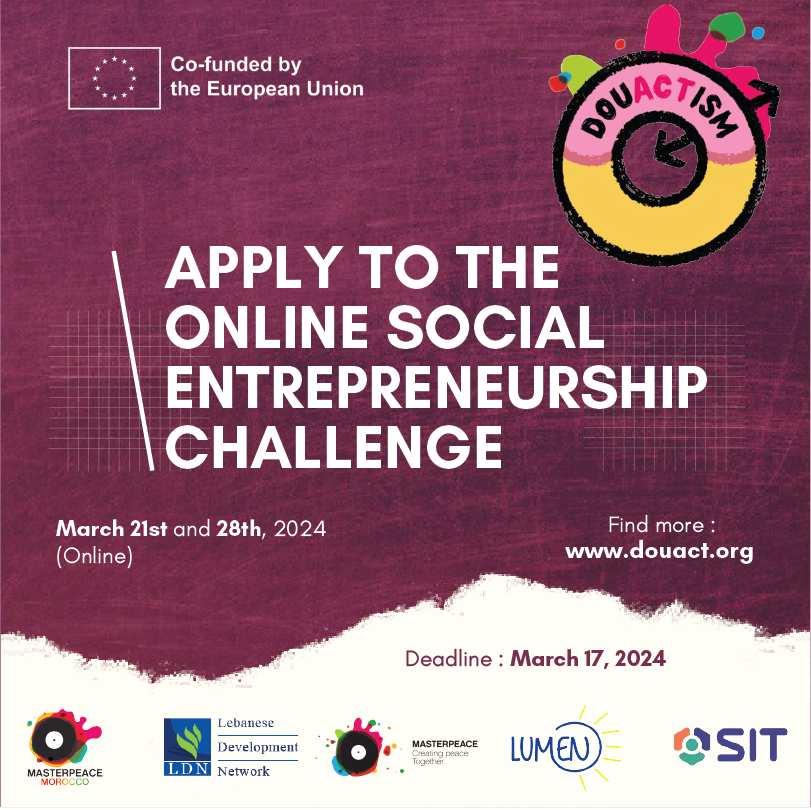
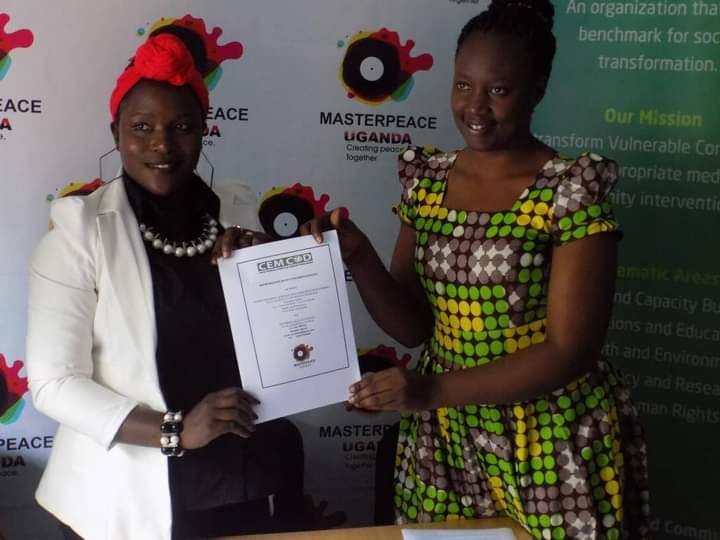
Kampala, Uganda – In a groundbreaking initiative to celebrate International Women’s Day 2024, Masterpeace Club Uganda, led by the dynamic media personality Jaqi Deweyi, has unveiled the inspiring #OmukyalaWaUganda (“Woman of Uganda” in Luganda) campaign.
This visionary campaign is dedicated to empowering women from all walks of life across Uganda and aims to spotlight the exceptional stories of ordinary yet remarkable women, including farmers, teachers, entrepreneurs, mothers, and community leaders.
The campaign will utilize various multimedia platforms, featuring short videos and social media posts to showcase the challenges and triumphs faced by these extraordinary women. To ensure an extensive outreach, Masterpeace Club Uganda has formed strategic partnerships with local media outlets.
Emphasizing interactivity, the campaign will engage the audience through polls, questions, and celebrations of Ugandan culture, incorporating elements such as music, art, and traditional attire. This immersive approach seeks to encourage active participation and create a sense of unity among Ugandans.
Prime Minister Robinah Nabbanja, a staunch advocate for women’s leadership, has expressed her support for the campaign, aligning with her call to empower women in leadership roles to uplift others.
A crucial facet of the #OmukyalaWaUganda campaign is its deliberate effort to challenge and counter negative stereotypes surrounding women. By showcasing numerous examples of women supporting and uplifting one another, the initiative actively opposes harmful stereotypes that suggest women are unsupportive of each other.
Masterpeace Club Uganda, a part of the globally acclaimed MasterPeace movement, is a non-profit organization dedicated to promoting peacebuilding and togetherness. With a presence in over 40 countries, the organization has garnered numerous awards for its impactful work.
Urging everyone to join the movement, Masterpeace Club Uganda invites individuals to follow the campaign on their Facebook Page (https://www.facebook.com/masterpeaceclubuganda?mibextid=ZbWKwL) and share their thoughts using the hashtags #OmukyalaWaUganda, #IWD2024, and #WomenInUganda. Let’s come together to celebrate and honor the incredible women of Uganda, fostering a spirit of empowerment and unity throughout the nation.

New Deadline to hire a Project Manager!
ABOUT US :
MasterPeace is a global, multi-award-winning, positive grassroots network of NGOs, social enterprises, partner organizations, active citizens and artists that make a difference locally; at school, in the streets, and in the communities. From Kathmandu, Nairobi and Utrecht to Medellin. MasterPeace is active in more than 45 countries. Through a social franchise model, we license local organizations as MasterPeace clubs.
Our mission is to connect, support, and strengthen CSOs for more social impact and share and scale innovative best practices to engage, connect and empower young people locally to use their talents for a peaceful, inclusive & sustainable future.
We realize this mission by local well-established CSOs, who are licensed to operate as a ‘MasterPeace Club’ in their locality. Our organizational model is a unique ‘upside-down pyramid’, where the MasterPeace Clubs are in the lead. Based on the concept of ‘social franchising’ every club takes ownership of their projects according to local needs. The foundation offers support by knowledge sharing, personal & professional coaching, partnership building, sharing and scaling best practices and driving co-creation and ecosystem transformation. The clubs are facilitated by the foundation through a highly motivated core team based in Utrecht, the Netherlands.
Right now, there are 60 MasterPeace Clubs in 45 countries around the globe, who collectively realize around 430 projects per year. A central part of the Clubs’ projects is “soft power”: using art, music, sports and play to mobilize and inspire young people. These activities are often combined with dialogue, knowledge sharing and skill development, so that the Clubs, young people, community and stakeholders can co-create new ideas and have the necessary tools to realize them. See more: https://masterpeace.org/
Our current presence in Africa is going strong with 20 Clubs spread across Morocco, Tunisia, Burundi, Sierra Leone, DR Congo, Cameroon, Egypt, Kenya, Ethiopia, Zambia, Zimbabwe, Liberia, Malawi, Uganda, and South Africa. Together, the Clubs are working towards Quality Education (SDG4), Gender Equality (SDG5), Sustainable Cities & Communities (SDG11) and Peace and Justice (SDG16).
JOB POSITION
As the movement is growing, the time is right for a PROJECT MANAGER to run projects in several countries (in the EU and Africa) and to strengthen the capacities of MasterPeace clubs in Africa.
Are you passionate about culture as a tool to bring about social change, have a soft spot for grassroots-level impact and love working in fast-paced & truly multi-cultural environments? If yes, you might be the talent we’re looking for!
As a project manager, you will have the unique opportunity to be a part of a new strategic approach of MasterPeace to build cohesiveness and increase the activities in Africa.
through effective project implementation and capacity building of the clubs.
You will be a changemaker, a pioneer, with the audacious goal of creating an impact on a local level through implementing project activities and mobilizing resources for the region.
RESPONSIBILITIES
The selected candidate will be responsible for:
- Manage and write multi-country country proposals for European grants. Attend project meetings and events as and when required.
- Planning of projects.
- Team management of multi-cultural project team
- Quality assurance of project results
- Implementation of project activities (in Morocco, other parts of Africa or Europe)
- Monitoring and evaluation
- Communicating regularly with the core team in the Netherlands, about the implementation of the projects, to seek and seeking innovative fundraising approaches and new social impact ideas which are replicable and scalable from the global Clubs
- Travel to the Netherlands at least once a year.
Also networking with relevant partners in the field is important (either for funding or for future collaboration). The job might be challenging but will also be extremely rewarding: you will see and feel the value of your contribution immediately, as you become a part of a tight-knit global family of changemakers.
You will work closely together with 2 colleagues in Agadir, who are responsible for the management of the African clubs, creating concepts and funding, campaigning, and implementing multi-country projects as well. The Dutch core team and international community of MasterPeace will be there to support you at all times.
Qualification and requirements
The selected candidate must have the following qualifications:
- Motivation and passion to create social impact at the grassroots level
- Experience with project implementation, preferably with change makers
- Passion for arts, culture & music and seeking ways to integrate these into social change projects
- Excel proficiency and overall financial literacy
- Desire to be a part of a change-making team with an out-of-the-box mindset
- Self-starter, proactive and result-oriented.
- Good eye for detail in text and design.
- Professional attitude, excellent networking skills, and business/work ethics.
- At least 25+ years old, with at least 5 years of experience working in a similar position.
- Excellent command of English and French (spoken, written, and understanding).
- You will be expected to be present at least 2 days a week in the office in Agadir.
Job Description: Project Manager / MasterPeace in Africa
Job Title: Project Manager
Job Type: Full Time
Salary: TBD during interview process
Candidates should apply with the following instructions:
Write an e-mail to maryam@masterpeace.org with the subject line “Application for Africa Project Manager” with your name, up-to-date resume, and a cover letter.
Deadline: 1st of March 2024.


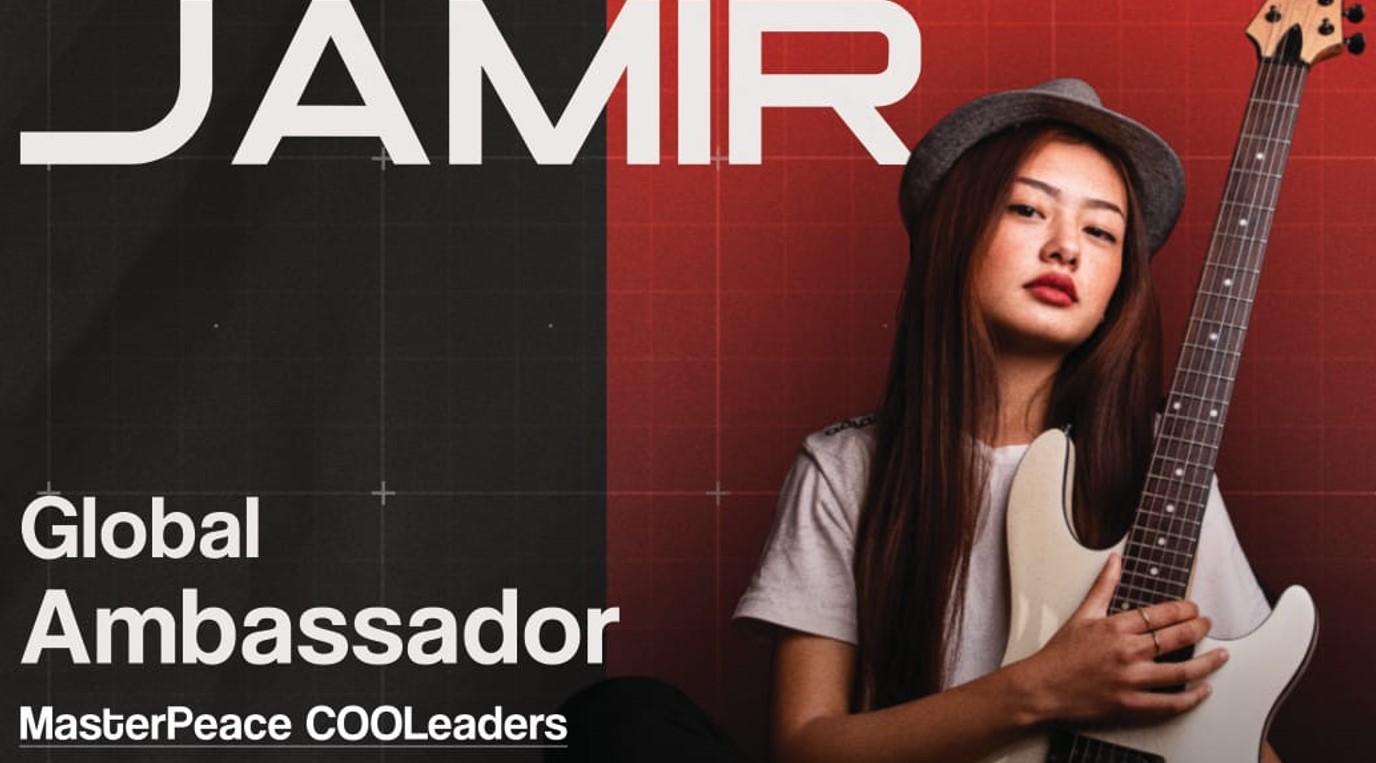
MasterPeace is delighted to welcome Imnainla Jamir as the Global Ambassador of Masterpeace COOLeaders program. She is an Electric Guitarist who has become a household name in India. The launch ceremony took place at Dimapur, Nagaland, India on December 27 in the presence of Mr. Abu Metha - Advisor to the Chief Minister of Nagaland. Imnainla will be carrying the message of COOLeaders throughout the world through her music and interactions with global youths.
The urgency has never been higher to ACT to solve issues – in environment, food, culture, language, relationships, etc. It is hence important for the youth to be mindful about their health, culture, career and the ecology, for the future of this planet and their lives. The MasterPeace COOLeaders is a global initiative for climate action & leadership. In collaboration with our global network of clubs and partners we are reaching out to the grassroots, particularly to the youth and children to build leadership and projects for climate action. In the process we are connecting people worldwide to come together and solve this urgent problem facing the planet.
We hope that together with the support of future cultural leaders like Imnainla, we can make a small but significant impact towards this goal. Imnainla will take forward the voice of India and Nagaland to the world. Masterpeace Global has been working closely with Task Force for Music and Arts (TAFMA) for the past few years and through TAFMA we reached out to Imnainla to request her to contribute her great talent and outreach towards the purposes of climate action and social change. Together with her, we will explore through music, arts, dialogue, sports and others to spread the message of taking responsibility for the future of this planet and our societies to youth around India & the world.
“It is an honor to be considered by MasterPeace COOLeaders to be its Global Ambassador.
I am excited for what lies ahead, especially my interactions with fellow musicians and young COOLeaders across 60+ countries of MasterPeace Networks.”
- Imnainla Jamir
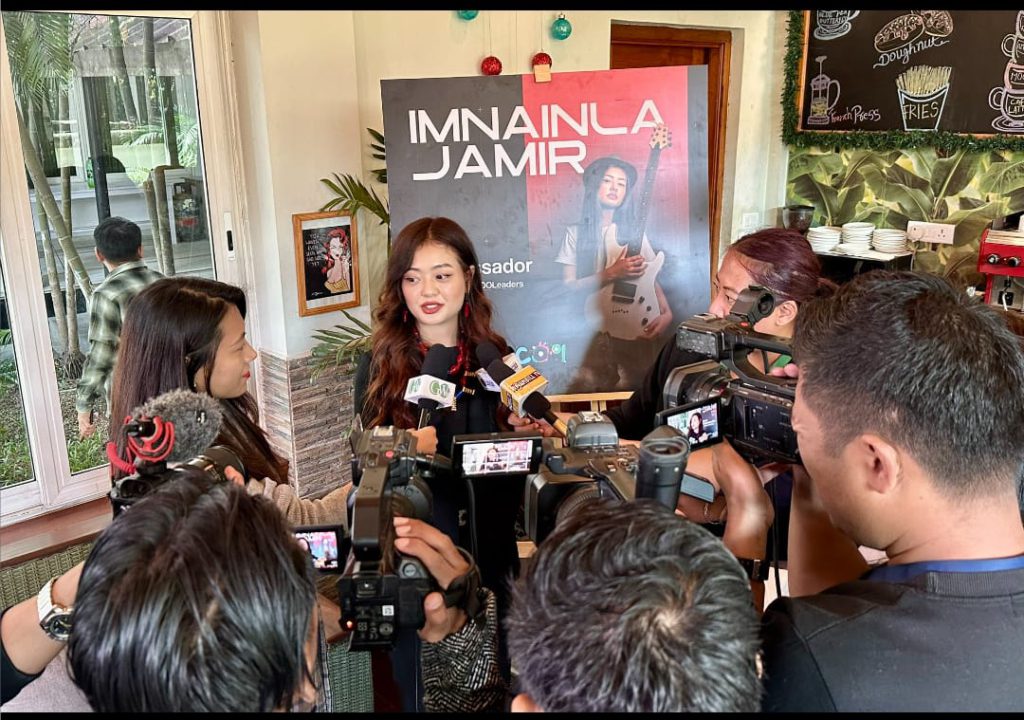
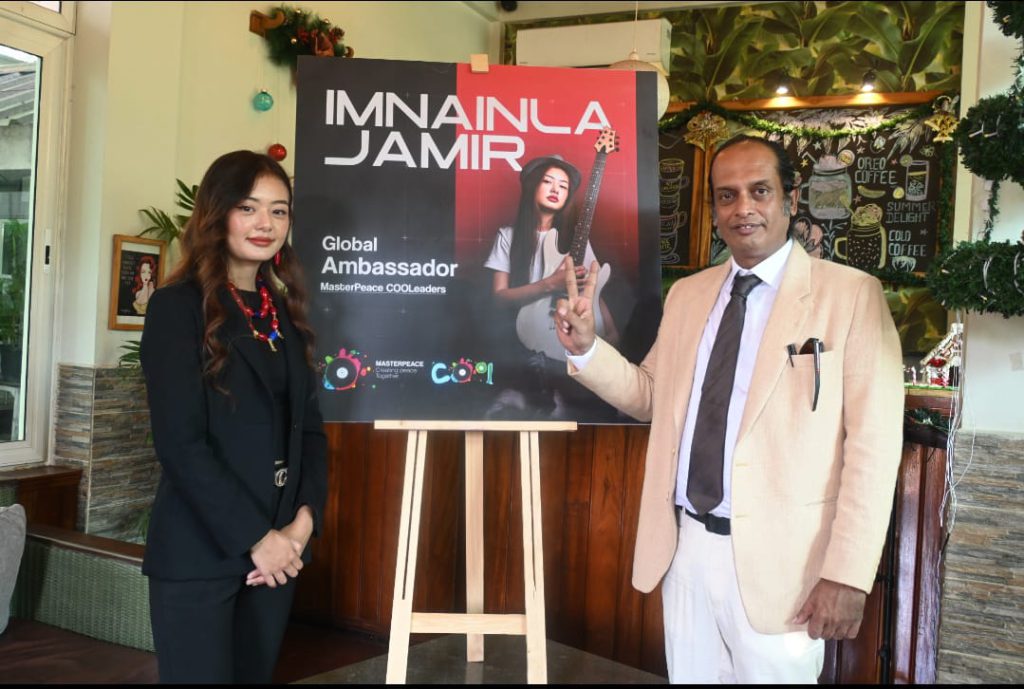
“I am happy to invite guitarist Ms.Imnainla Jamir to be MasterPeace COOLeaders Global Ambassador.” We hope that this partnership will present her an excellent opportunity to reach out to a global audience and have a chance of working closely with our team to develop new artistic concepts and projects. MasterPeace looks forward to this amazing Co-creation."
- Aart Bos, Global Leadership, MasterPeace
Sudipta Dawn, who is a part of MasterPeace COOLeaders Project and a Club Leader of MasterPeace Bengal, highlighted the importance of the initiative and how Imnainla can bring it to regional and global level through her talent, music and inspiration He emphasizes that “Through the COOLeaders program we are trying to build leadership at grass roots level, particularly in the youth, for climate action and social transformation. Along with our clubs and partners throughout the world we are reaching out to more and more people and motivating them to take some practical actions which can make a major difference for the planet. We are also working closely with our clubs to co-create projects and trying to raise resources to implement these projects.”
The event has been given significant space in news and media coverage which highlights the popularity of Imnainla and her amazing job in the region through music and art.
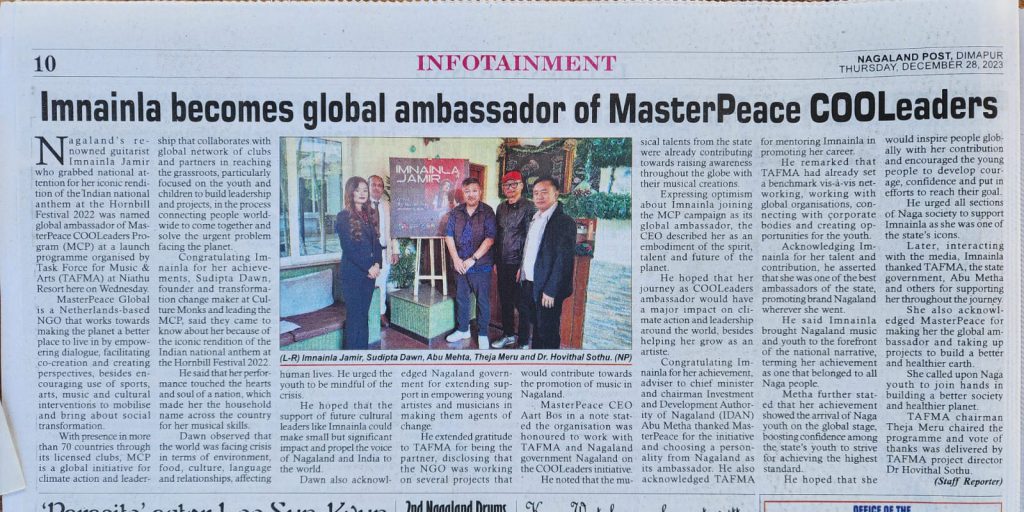
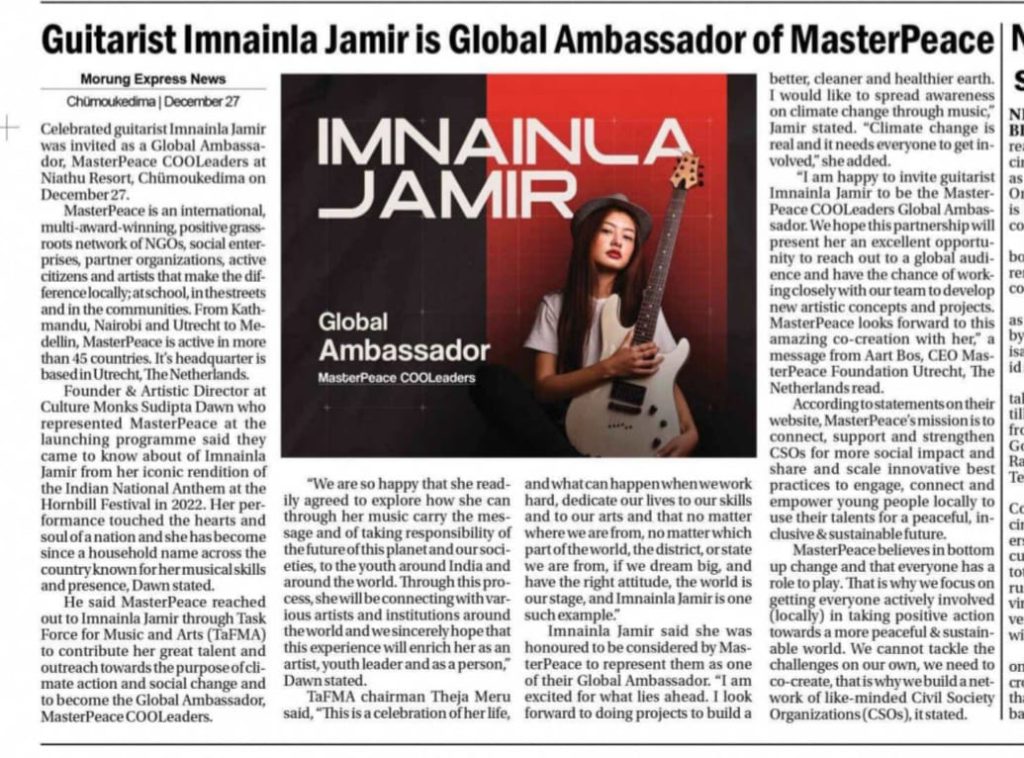
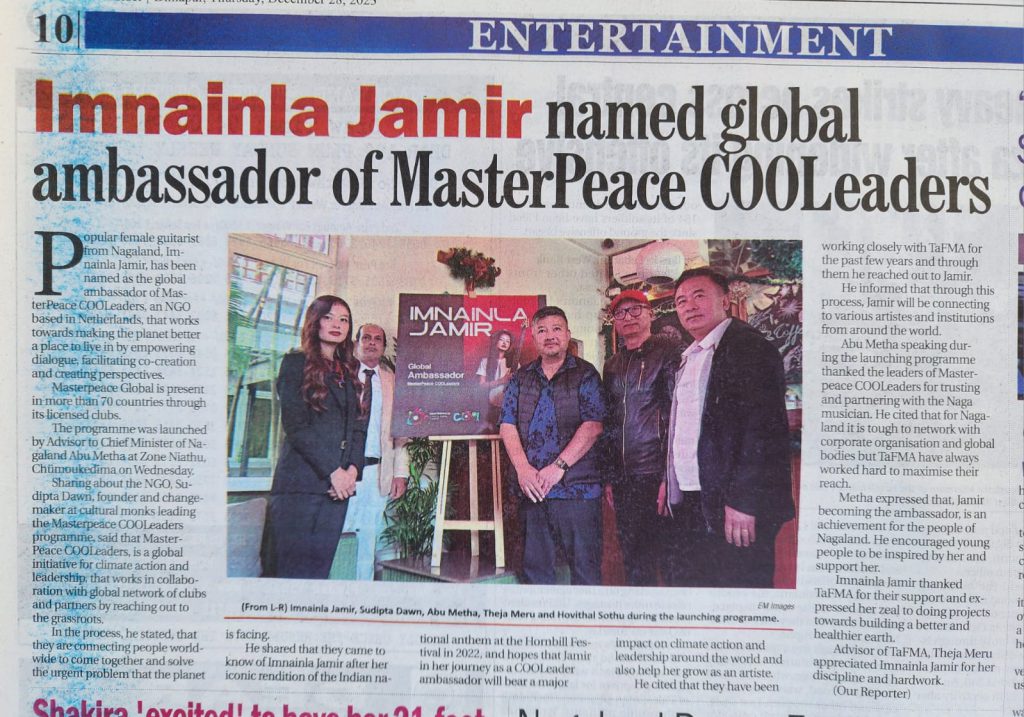
- All
- Africa
- Americas
- Asia
- Europe
- Global
- Highlights
- My Music Competition
- Podcast
- Uncategorized

